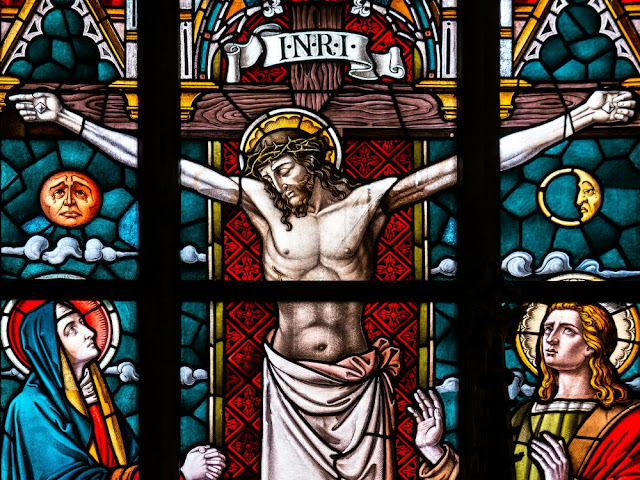Who Do You Say That I Am?
Throughout the Gospels, Jesus asks many questions to his disciples, but perhaps the most important question is found in our Gospel today, “who do you say that I am?” By this point, the disciples have been with Jesus for a while; they have heard Him speak, they have seen Him do miracles, they have witness something completely different than what they have ever encountered. And Jesus finally asks, “who do you say that I am.” This question is essential, not only to the disciples but for all of us as well, because the answer to this question determines everything else in our life, including our destiny. This is a fundamental question that every one of us will have to answer at some point: either in this life or the next.
Upon hearing the question, peter replies, “You are the Christ.” The word “Christ” comes from the Greek word “anointed one” – or Meshiach in Hebrew—and this title brought about many important ideas regarding the Savior. For the Jews in the time of Jesus, the Christ was a direct descendant and anticipated son of David, the rightful heir to the throne of Israel, the leader who will destroy the enemies of Israel, the man who will bring about the proper worship to God. But Jesus destroys this idea, in the second part of our Gospel, by saying that He will be rejected and be killed. Nobody at that time, could understand that the long-anticipated Messiah would suffer and die! It was absurd. This is exactly what we hear in our first reading, taken from the book of the of the prophet Isaiah, “I have not rebelled, I have not turned back. I gave my back to those who beat me, my cheeks to those who plucked my beard; my face I did not shield from buffets and spitting. But because they couldn’t see a suffering servant, Peter rebukes Jesus. However, This rebuke has a deeper meaning. Peter’s rebuke of Jesus symbolizes our own unwillingness to accept the suffering and death that comes from following the Lord. We would all prefer to follow a Jesus who is politically powerful and successful. But a suffering Jesus? Never!
And then Jesus concludes the Gospel with saying if we want to follow Him, we must carry our own cross and follow Him. The cross meant the most horrifying way to die. It meant that the criminal had to carry it, under terrible pain, to the place where the criminal would face their end. And Jesus is telling the disciples and us that we must do exactly that. My friends, Jesus is telling us that if we want to follow him, we must know that we are on our way to death. We must give up hope in this life and we must accept whatever suffering we face for following Him. But Jesus continues with a great paradox: ‘For those who want to save their life will lose it, and those who lose their life for my sake, and for the sake of the Gospel will save it.’ It is precisely by giving up our life, we gain it! By dying to this world, we received the eternal life in the kingdom of heaven. If we choose to follow Jesus, it means a path of suffering and death. But even if we decide not to follow him, we will still face suffering and death. The difference is that we will not have the hope of eternal life because we have rejected Jesus’s offer.
So, my brothers and sisters, who do you say Jesus is? A Crazy prophet? A man who you sometimes pray to especially in times of need? A man who your parents make you pray to? A moral teacher? The son of God? the Savior? A man whose body and blood is truly present in the Eucharist? The answer to this question determines everything else in our life, including our destiny. If the answer to the question is that Jesus is our Lord and savior, it means that we have offered our everything to him. It means that we have full faith in him. This faith, then, will allow all of us to express it by works as St. James reminds us in the second reading. These works are the sign of the how we answer the question, and the moment we step out of the Church, we are called to proclaim and sanctify everything around us. Today, for all of us here present, Jesus is our everything because we have come to this Eucharistic Celebration to eat of His body and drink of His blood. As you receive Jesus in the Eucharist, ask for the graces we need to continue answering the question he is constantly asking of us, “who do you say that I am?” so that one day we can say together what we recited in our psalm today, “I will walk before the Lord in the Land of the living.”



Comments
Post a Comment